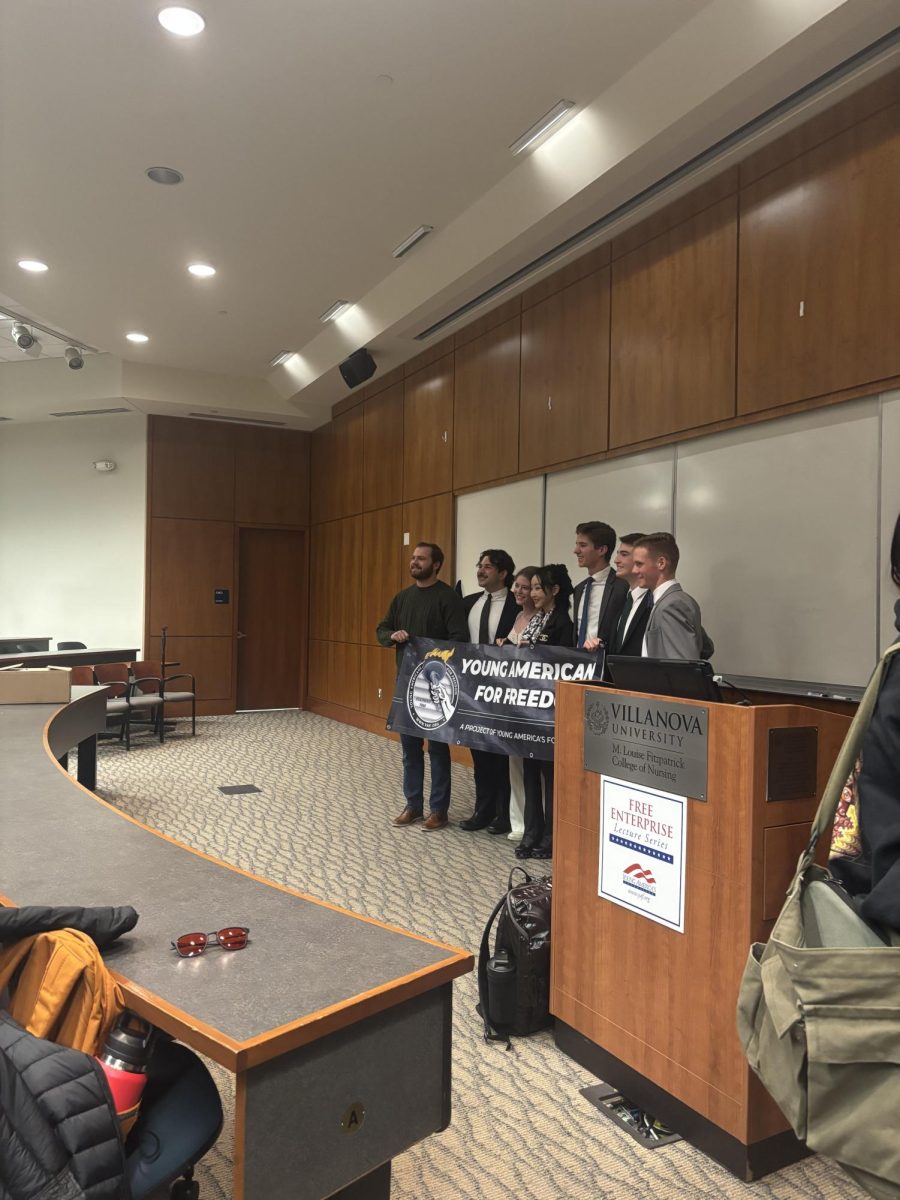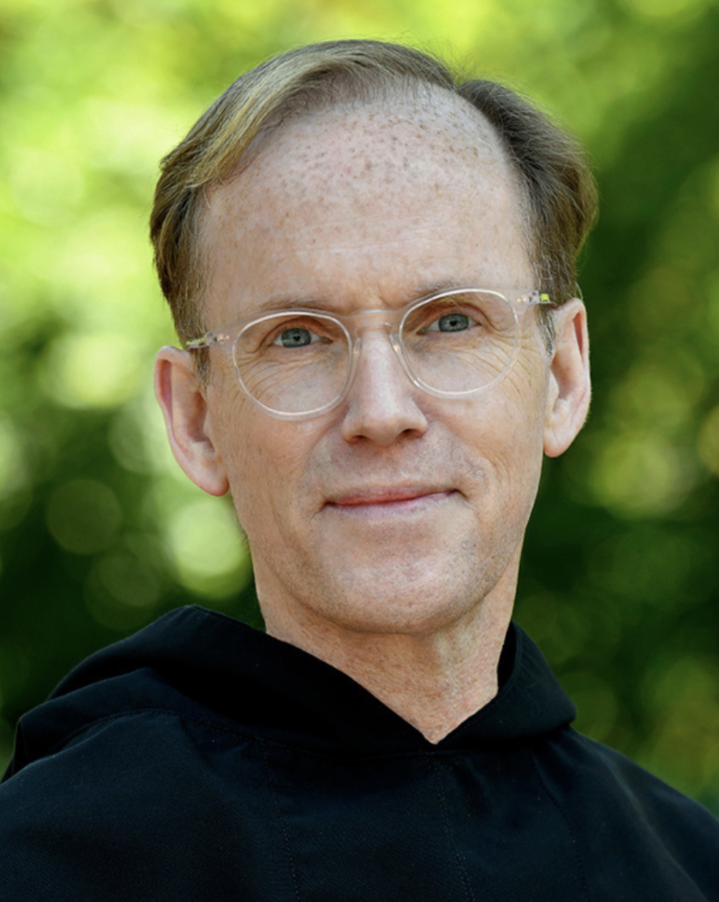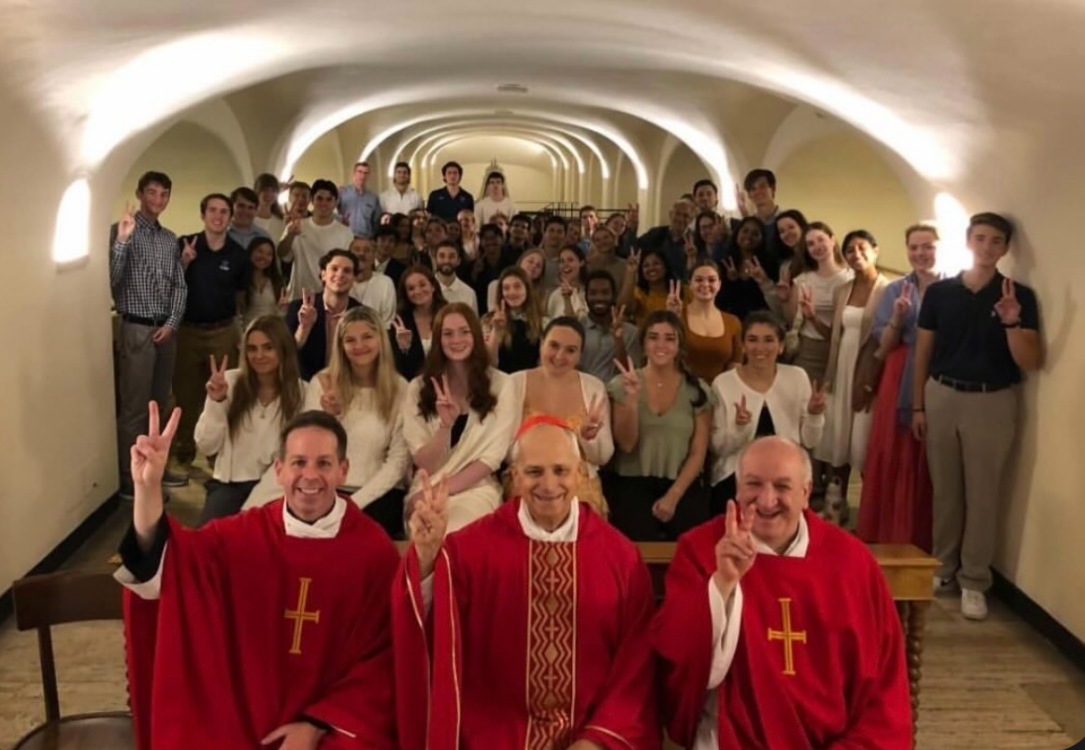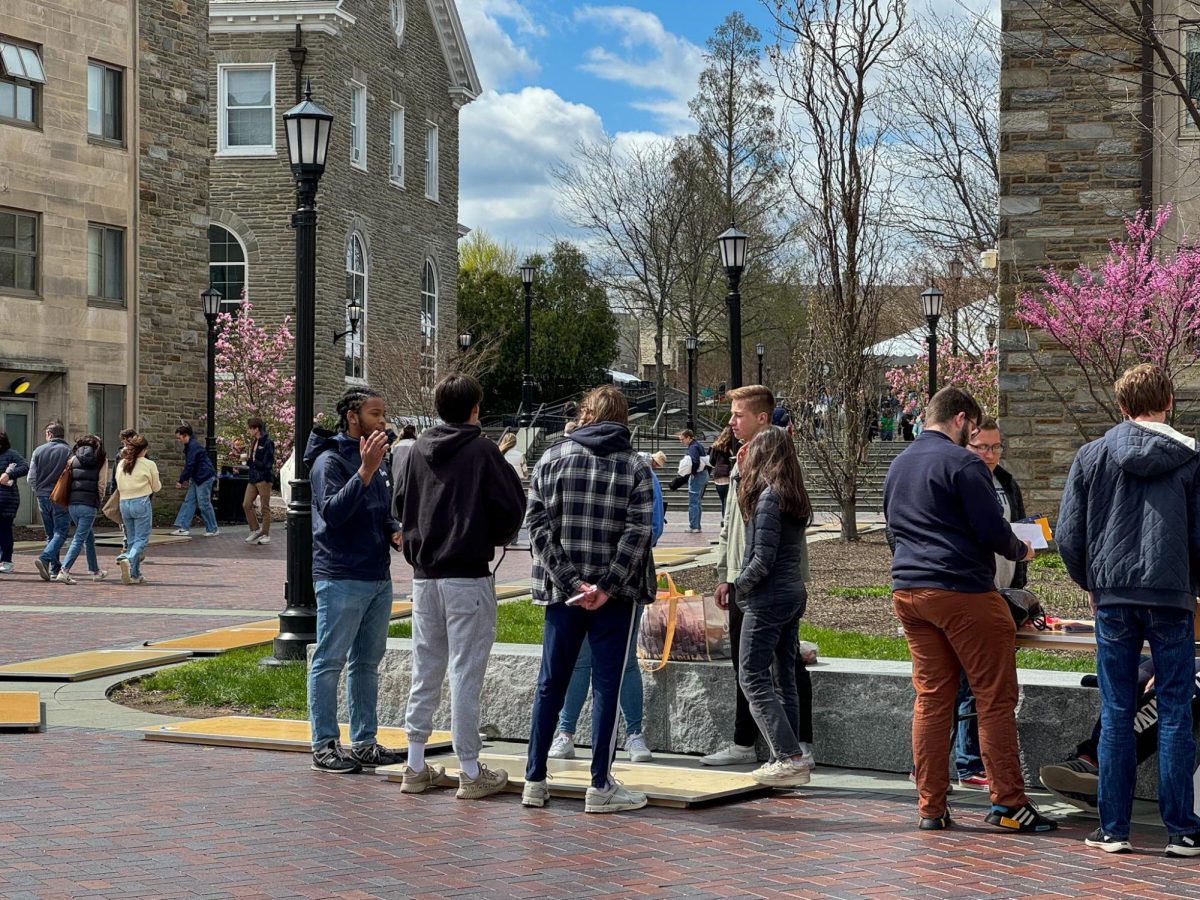North Korean defector and author Yeonmi Park visited Villanova on Thursday, April 10 to give a guest lecture on her experience leaving the authoritarian state and coming to the United States.
The event was hosted by the Matthew J. Ryan Center for the Study of Free Institutions and the Public Good as part of a series of speaking events by the Young America’s Foundation. According to its website, the nonprofit conservative youth foundation seeks to promote the ideals of “individual freedom, a strong national defense, free enterprise and traditional values.”
Across the Driscoll Hall auditorium, eager students took up every possible seat, with some even lining the stairs.
Park began her lecture discussing some of the political ideals she was exposed to upon coming to the United States in 2016 to study at Columbia University.
“My classmates and my professors at Columbia were saying we have to, you know, destroy the Constitution and dismantle American systems,” Park said. “And that we have to rebuild in the name of equity and collectivism, like North Korea.”
Park was incredibly shocked and dissatisfied with these statements and conversations, and believes that there is a disconnect between Americans and what it means to live in an authoritarian state.
“Most people in America have no clue what it means to live in a socialist state,” Park said. “I hope my story here can help you to understand a little bit better.”
Born in 1993 in the northern part of the country, Park grew up as most students across the world do. She had parents and attended school like any normal kid. Living in North Korea however also meant learning how to survive alongside an all-knowing government, one Park compared to 1984 by George Orwell.
“My mother told me, ‘Don’t even whisper,’” Park said. “The most dangerous thing in my body was my tongue.”
Park’s father found himself in trouble with the North Korean government after engaging in illegal trade. The “dark web” carries connotations in the West that are far more different than that of North Korea, where this illegality consists mostly of trading food. He was ultimately arrested and sent to a government labor camp.
While North Korea was severed from the rest of the world, Park described her experience learning from bootlegged movies and shows from China. Park described that her first glimpse of the Western world separate from government propaganda came from WWE pro-wrestling.
One film in particular that changed her life was Titanic, an immensely beloved romance movie.
“For the first time as a young girl, seeing a man dying for the woman that he loves, that gave me a very first taste of humanity,” Park said.
Both her family and her knew it was time to leave North Korea, and wanted to get out at any cost.
At age 13, Park’s mother and she escaped to China. This departure did come at a cost, and Park’s hardships did not cease upon crossing the border.
“The very first thing I saw in China was my mom being raped right in front of me,” Park said. “They said if we want to stay in China, then we have to be sold as sex slaves… I did not know what human trafficking was.”
In 2009, the man who had purchased Park decided to let her go, but there was nowhere in China for her to stay that wasn’t intensely dangerous. Ultimately, Park went to a chat room, where she interacted with men online in exchange for shelter and food. There, she was alerted of Christian missionaries who could get her into South Korea.
When speaking to the missionary, she was told that she would eventually be free. Park asked what this entailed.
“She said being free means you can wear jeans and watch K-dramas,” Park said. “I thought, that’s the coolest thing I’ve heard.”
After treacherously crossing the Gobi Desert and passing questioning in Mongolia, she was brought to South Korea and verified as a true defector. There, she began to read stories from the United States by Barack Obama and Hillary Clinton, and knew that was where she wanted to go next.
“I wanted to go to that promise land, where everyone has the same opportunity,” Park said.
Upon arriving, she felt dismayed by the opinions of her fellow students and professors. Park said she still sees this disconnect living in New York, citing her dissatisfaction with representative Alexandria Ocasio Cortez.
Park believes that the United States is headed down a dangerous path if others continue to champion equity, one she compared to North Korea. She argues that equality of opportunity and less governmental intervention needs to be upheld.
Following her speech, Park opened the floor for student and faculty questions. Most students in attendance praised her for her courage and political stances, but some took the floor to dissent.
One student in particular questioned her ideas on homelessness, which some audience members found to be controversial.
“The fact that you have homelessness,” Park said. “It’s not a sign of oppression and injustice. It’s a sign that you have choices.”
Another student shared that his parents left the Soviet Union and were also conservative, asking if Park noticed that many people who flee socialist states identify as conservative, and why this may be the case.
“I think 98% become Christians and conservatives,” Park said. “And you can say something must be wrong with the people who escaped socialism, or maybe they got to see some real truth in their life.”
Park also used this time to share her dissatisfaction with censorship in light of her political beliefs, as well as the lack of awareness surrounding the sexual slavery occurring in China due to ignorance in the west.
Students who wish to attend other events similar to this lecture are encouraged to stay up to date with the Ryan Center, and can contact the center at vuryancenter@villanova.edu.







